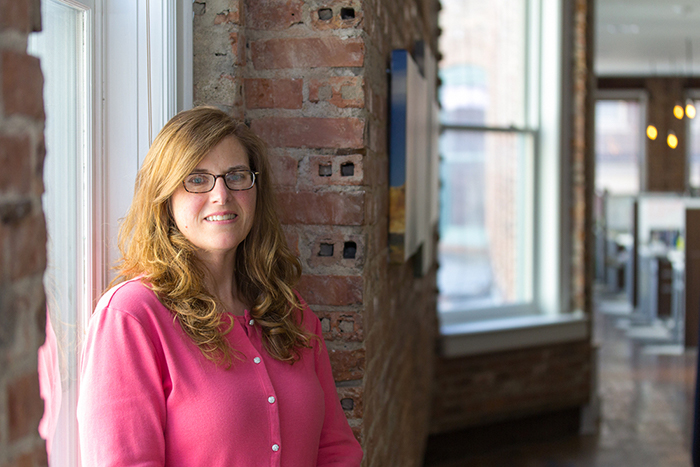The importance of connection

Published Aug. 13, 2015
Isolation is a very real and serious issue for loved ones of those suffering from the disease of addiction. We often withdraw from our families, friends and coworkers. We do this because of our shame and confusion about all that’s going on. This self-induced confinement increases our emotional, spiritual and physical pain, and this can cause us to quickly move even further from the critical help and support we need as we seek our own wellness.
I felt alone, afraid and at a complete loss of what steps to take when my son was deep into his addiction. I believed I needed to hide what was going on from most everyone in my life. There was an irrational fear of having our story come to light. Hiding was easier to endure. If I talked about my son’s disease, then I had to truly acknowledge and experience the pain. The outcome of this isolation was the near shutdown of my maternal interaction with my son and an onslaught of health issues. It wasn't helpful to my son’s steps toward recovery.
I’ve been in an intense period of reflection the past couple months about my experience as a mom of a son who experimented with, abused and became addicted to drugs. I’m still taking steps to come out of my isolation from others, but I’ve found myself surrounded by a variety of people who care about me and support my wellness, including my husband, parents and sisters.
Recently, I’ve had the opportunity to support other moms of children who suffer from addiction. Some of these moms are new on the road to wellness, while others are further along than I am. We’ve discussed the desire to isolate ourselves – to hide from everyone. We took the steps we thought were necessary for self preservation when we were experiencing intense feelings of guilt, remorse and shame.
Nelson, Henriksen and Keathley (2014) describe three stages of recovery for mothers of sons in a substance addiction recovery process – pre-addiction, addiction and recovery. It’s not a coincidence these stages match up with the stages of the person with the addiction. The authors say “maternal love was interwoven throughout all of the stages... identified, drove the feelings... experienced, and impacted the choices... made during their journeys of living with the knowledge that their sons were chemically dependent.”
In the pre-addiction stage, I didn’t have any abnormal conflict with my son (Nelson et al., 2014). It was what you would probably consider a normal mother-child relationship full of love, compassion and hope for the future. I was boastful of everything going on in my son’s life. I sought input from our loved ones on how best to train up my son to be the man he was put on this earth to be. When I first learned of his drug use, I was confident it was a minor set back – a time of seeking independence. I was still very connected with others around me – my family, friends and coworkers.
In the addiction stage, my son and I experienced intense relational conflict and stress (Nelson et al., 2014). I was his mom – I loved him, but I was also feeling anger about the fact that our family was having this painful experience. Moments of grief and disappointment were frequent and debilitating. I was in extreme self preservation mode. I withdrew from almost everyone around me. My goal each day was just to make it through any given moment without experiencing too much pain. I wanted to protect everyone from the anguish and out of control feelings I was experiencing. I figured the less they knew, the less chance they would view my son – their nephew or grandson – as having a moral failing. I hid everything from most of the people I worked with all because I didn’t want them to judge me or my son, and I was fearful of repercussions on my job. The isolation was acute at this point in our lives.
I’m now in the recovery stage. I’m working on my relationship with my son and my personal wellness (Nelson et al., 2014). I’m his mom and I still desperately love him. I’m still greatly concerned for him. I’m still deep in self preservation mode. The key is that I’ve learned isolation is not helpful to my self preservation or to my son’s steps toward recovery. I’ve made steps to mend relationships with my close family. Their support has been so helpful!
Burying my head during the hard times actually made it more difficult to cope with my son’s disease. I’ve learned that sharing my testimony about our experience, even though it can be painful to relive, helps me in my own recovery. And, I’m able to let others – especially other moms – know that they’re not alone, that they’re not isolated. Even though they may feel a strong need for self preservation, this doesn’t mean they need to do it alone.
Connection with others is so important for everyone, but especially for those supporting a loved one through recovery from the disease of addiction to alcohol or drugs. Staying connected allows us as parents, siblings, spouses and friends to seek our own wellness and be empowered to effect change in our lives.
As a mom, I know I’m the constant in my son’s life, regardless of where he is in his recovery. I care deeply for him and work to show him love and compassion in ways that aren’t harmful to me. I garner my strength to do this more effectively from my higher power and the people around me who are there to lovingly support us both. I’m so grateful I’ve learned this lesson in my life. My path of self preservation now involves connections to others – all walking together in the light of day!
